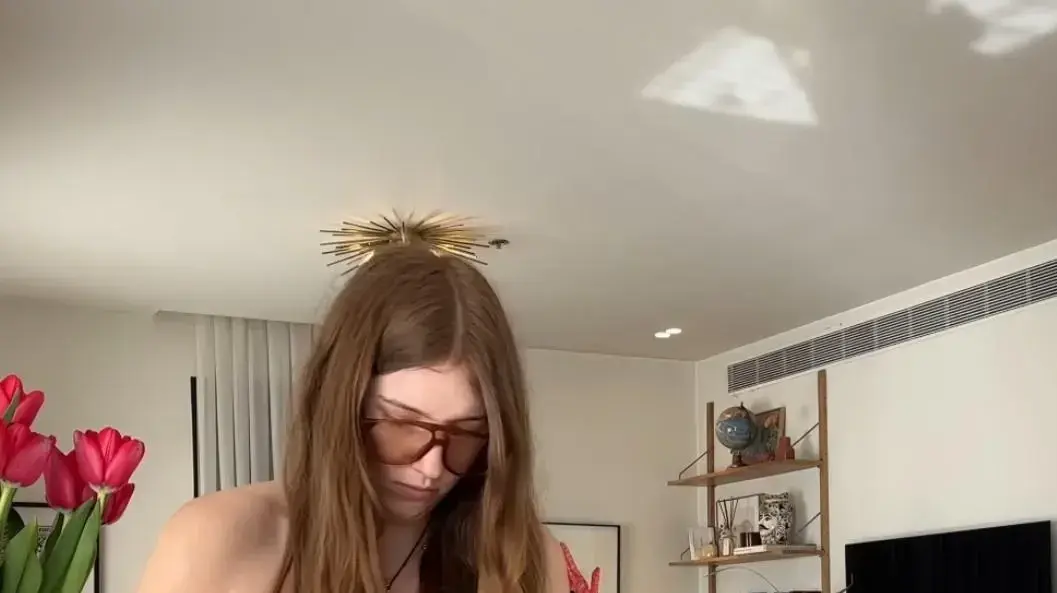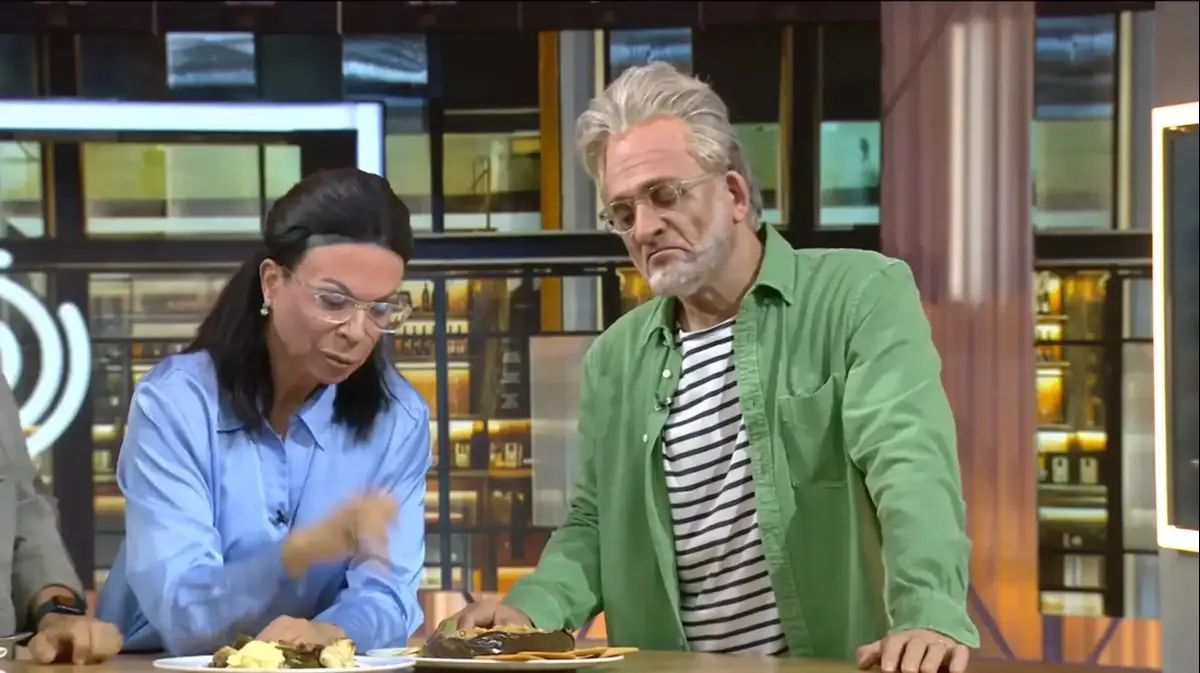On April 10, 2013, the first
MasterChef program was broadcast
in Spain.
About to celebrate 10 years on TVE, the format remains one of the main assets of public television, capable of gathering millions of viewers and reporting screen quotas that allow La 1 to lead its broadcast slot.
With 26 editions already broadcast (10 with adult contestants, 9 with children and another 7 with celebrities, as well as two specials with elderly participants), it is impossible to deny the success of the Spanish version of this international franchise of British origin with adaptations. in more than 60 countries.
The audience continues to respond: although the data is already far from the more than three million viewers who managed to summon the first editions of the program (they were also other times for television consumption in general), the recent seventh installment of
MasterChef Celebrity
has averaged 1,531,000 viewers (15.5% share), well above the channel average.
Almost since its inception, the controversy has been one more dish on the menu of a program that, posed as family entertainment, brings together audiences of all ages.
Despite the fact that its contestants are amateur cooks, the format shows off the high level of demand that is imposed.
At the same time, it never loses sight of the fact that it is an entertainment program.
For this reason, when carrying out the
casting,
the production company is not only looking for cooks with a certain level, it is also looking for profiles that can play on the air and offer a show.
More information
Patricia Conde accuses MasterChef of manipulation and denounces the drug use of two colleagues
Those have been some of the ingredients of the latest big controversy surrounding the show.
The recently finished seventh installment of
MasterChef Celebrity
had the presenter and actress Patricia Conde as one of her favorites.
In one of the tests of the final, she surprised the judges and spectators with a more easy-going attitude than usual.
She claimed to be tired.
Some viewers believed they saw in her gestures and her words an intention to show the perverse side of the high levels of demand to which she submits to the contestants.
Lorena Castell, Patricia Conde, Manu Baqueiro and María Escoté, the four finalists of 'MasterChef Celebrity 7'.
After the broadcast of the program, Conde published an image on Instagram on Tuesday accompanied by a text that he has edited on several occasions and in which he explained his behavior.
"When they yell at me or don't treat me well, I don't know how to manage it," said the first version.
“I really blocked myself under so much pressure.
Not only that of cooking, but that of all the people in front of us giving orders and especially what they will say about us on social networks later.
You already know some terrible consequences.
I had never seen
MasterChef
and wanted to investigate from within.
“I'm sorry I wasn't more competitive and ambitious.
(...) I prefer to laugh at myself and offer the
show
that so many asked of me.
(...) This is television, it is not real, ”she prayed.
But the tension grew when on Thursday, the Valladolid woman changed the text to add a few paragraphs that included serious accusations of manipulation and drug use within the program.
“Another thing, boss, tell the network guys on the show (who are wonderful) to stop writing hurtful things about me.
I was talking about the danger of the networks, not mental health, what I'm suggesting is that you hire a psychologist for the program to explain to us the reason for things.
Like, 'you're not crazy, the oven has been turned off', for example”.
And she adds: “I was just sleepy, I have never taken drugs and in a television program with 14 cameras focused on me I would not do something like that [...].
You know perfectly well who are the two people in this edition who have done it, every day.
Look at the images of the day at the racetrack, for example”.
Patricia Conde listens to the jury after the outdoor test of the 'MasterChef Celebrity 7' final.
On Thursday afternoon, the program's producer responded through a statement: "Shine Iberia regrets and denies the accusations made by Patricia Conde towards the program team, as well as towards the rest of the contestants of the latest edition of
MasterChef Celebrity
, uncertain comments that threaten the honor of all the people involved in the production.
EL PAÍS has contacted the production company, which has declined to comment further and ensures that it is not considering introducing changes to the operation of the program as a result of this controversy.
TVE has also refused to comment.
This is only the latest controversy that has surrounded
MasterChef
in its almost 10 years of life in Spain.
Following Conde's words insinuating that the program manipulates and boycotts the work of the contestants, some Twitter users have recalled the words of singer Xuso Jones, a participant in the third edition of
Celebrity
.
"My experience was fucking shit," said the singer in a
podcast
in February 2022. "For an entertainment program to entertain people at home, things have to happen that the viewer cannot imagine behind the scenes... They don't notify you, you see it live," explained the participant.
The abandonment of the singer María del Monte in the first edition of the format with celebrities has also been remembered.
"I like to enjoy things, and I'm not enjoying it."
In addition, he addressed the three judges: "Apart from thanking you for your advice, tell you that it is not necessary to have the face of a
Morena Clara
prosecutor all day to speak to people."
Internal audit
Without a doubt, the biggest crisis that
MasterChef has faced
on his tour in Spain occurred after the suicide of the actress Verónica Forqué a year ago now, a few days after his highly commented participation in the program (recorded months before) finished broadcasting.
Forqué left just before the semifinal.
A few days later, the RTVE board of directors approved the launch of an internal audit of the program to find out in detail the contracting processes and the costs of the different versions (whose production is around 550,000 euros per episode).
"It is about making an x-ray of the program and a format that sometimes forces situations to obtain one more audience point, and that generates script tensions and creates problems for TVE", they explained from the control body, and assured that the decision was not related to Forqué's death.
Verónica Forqué, in 'MasterChef Celebrity 6'.
It was related to the fine of 219,000 euros that the National Commission for Markets and Competition imposed on RTVE in 2017 for the broadcast of covert advertising in the program of some wineries and their wines.
This summer, the public chain was also fined (although the decision has been appealed) with 125,000 euros for the same reason, in this case for promoting food products sold by a former applicant who came as a guest.
In that case, some viewers criticized the public channel for advertising and talking about the benefits of pseudoscience-related products.
offensive humor
Back to the version with celebrities, the 2020 edition raised a stir for a character by Florentino Fernández, Flosie, who caused abundant complaints due to the offensiveness of his supposed humor.
So much so that the show edited its last two installments to remove the character's appearances.
Also in 2020, the edition with unknown participants had in Saray Carrillo, gypsy and trans, her most controversial contestant after being expelled from it by presenting a dead partridge without plucking as a plate.
In an interview, the participant explained that she had not been selected through
casting
, but that the program team was the one who contacted her.
She claimed to have felt used: "Actually, it was a way of vindicating myself, a way of saying, 'gentlemen, I'm not going to cook anymore so you can humiliate me.'
Florentino Fernández and Pepe Rodríguez, at a time when the comedian played the character of Flosie.
The children's edition has not been spared from controversy either.
In addition to frequent comments due to the demand and the level of stress to which its young participants are sometimes subjected, some tests have shown how the little ones skinned rabbits, images that were repeated in other adult editions and that hurt the sensitivity of some viewers. .
Beyond the content, a common complaint from
MasterChef
viewers has been due to its duration and, therefore, the late hour at which it ends.
The Spanish edition is the longest of the European versions because, while in other countries only one test is broadcast per night, La 1 broadcasts the three tests in a row.
At least it has been that way until now, because the next edition with adult contestants will be scheduled with two weekly broadcasts, with which it is expected that each of them will end earlier.
They have not yet specified how these emissions will be distributed.
RTVE awarded Shine Iberia 20 million euros in October for the production of different versions of the program in the coming year.
The agreement includes 25 installments of the adult version (8.6 million euros), in addition to 15 for the next edition with celebrities (7.2 million) and six Christmas specials (4.2 million).
Controversies aside, there is still
MasterChef
for a while.
You can follow EL PAÍS TELEVISIÓN on
or sign up here to receive
our weekly newsletter
.



/cloudfront-eu-central-1.images.arcpublishing.com/prisa/DQGB2T2A6BCRPADKKCEC7T3Q3E.jpg)



/cloudfront-eu-central-1.images.arcpublishing.com/prisa/DWNMLKJJCJB7TBU7EWSPPPIT6Y.jpg)






